Creating a more resilient, equitable future for all through ‘impact philanthropy’
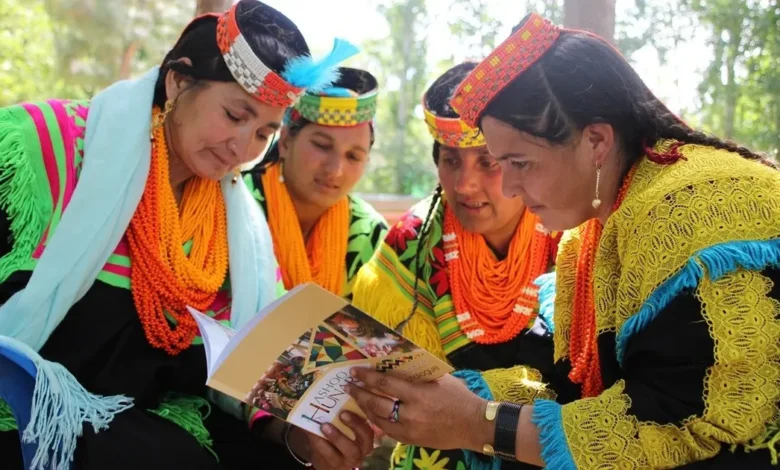
While charitable giving and philanthropy are widely known, the concept of ‘impact philanthropy’ and its economic and social benefits have not been as widely discussed.
Impact philanthropy represents a dynamic approach that seeks to address social and environmental issues through the dual lens of financial sustainability and social impact. This innovative model goes beyond traditional grant-making by leveraging investments to catalyze and scale solutions, creating a more resilient and equitable future for all.
For an in-depth understanding of this topic, Al Arabiya English spoke to the Deputy Chairman and CEO, Hashoo Group, and Chairman, Hashoo Foundation, Murtaza Hashwani, who is based in Dubai.
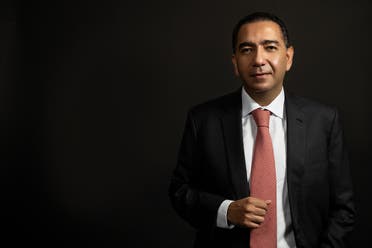
The Hashoo Group is based in Islamabad, Pakistan, with an office in Dubai.
The Hashoo Group has extensive roots in the hospitality business in Pakistan. The group’s multiple business ventures include the first hospitality school in Pakistan – the Hashoo School of Hospitality Management, affiliated to the Sheffield Business School, UK.
Among their ventures, EveryWater, the product launched to tackle the issue of water shortage in Pakistan has had great social impact.
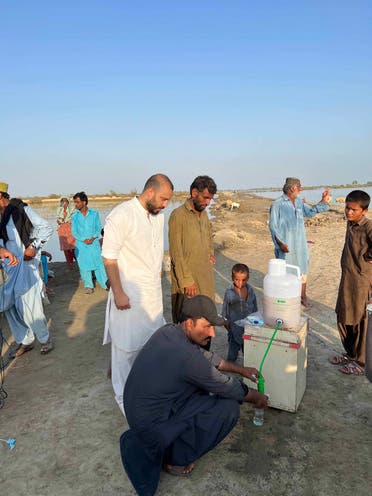
By developing disruptive technologies, the Hashoo Group has risen to the top rungs of Pakistan’s corporate world, but with a global reach.
As the Chairman of the Hashoo Foundation, Hashwani aims to bring in positive and impactful change in the lives of individuals and communities at large by leveraging knowledge as the capital for their socio-economic upliftment.
The Hashoo Foundation is presently focused on providing access to education, health and sustainable livelihood – directly benefiting thousands in rural and urban Pakistan.
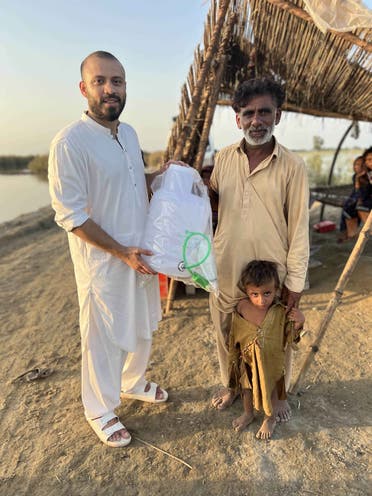
Hashwani believes that there needs to be a shift in how philanthropists and organizations approach the idea of giving by investing in businesses that create social impact, especially those that address social, environmental or other pressing issues affecting human development and progress.
By embedding the foundation into his business ethos, Hashwani wants to give people around him the support they need to excel.
“Impact investment is a rapidly growing phenomenon that has sparked enthusiasm far and wide. It can enhance effectiveness and efficiency to tackle the global economic, social and ecological crises of our time,” Hashwani said. “The interesting aspect of impact investing is that physical presence of investors is not required and it can be done anywhere by anyone,” he added.
Impact investing saw a huge boost in popularity during the pandemic due to increased awareness on climate change and social challenges such as unequal access to healthcare and racial and gender inequality.
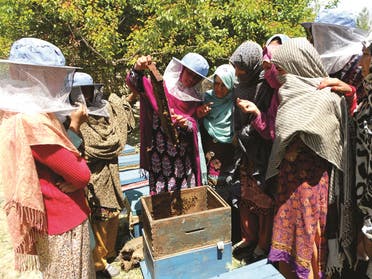
From the perspective of social responsibility goals, investments in social, environmental and health verticals definitely yield more ROI than just charitable donations, according to Hashwani.
“While impact investing and philanthropic investments are focused on long-term strategies, charity is focused on providing immediate relief to people. One can think of charity as a natural, emotional impulse to an immediate situation, whereby giving usually occurs in the short-term and in response to a critical and urgent situation,” Hashwani explained.
Hashwani said he practices both modes of giving. “As Chairman of the Hashoo Foundation, we implement multiple programs that ensure funds are distributed in areas that need them most, but I also have multiple impact investments, one of which is EveryWater, that provides cost-effective clean drinking water to regions that have never had access to it, while promising to remain a profitable business venture in the long run.”
Measuring outcomes
According to Hashwani, most people misunderstand what impact investing truly is – which is not surprising since there are many different definitions out there, depending on who is deploying the capital.
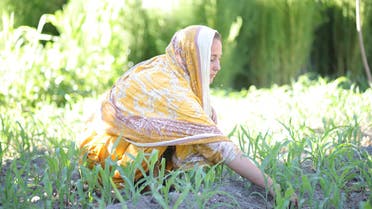
However, the generally accepted definition of impact investment involves three guiding principles: First, there must be an expectation of financial return – the investor is looking to make a profit while also having a positive impact on the world’s social or environmental concerns. Second, the change sought – social or environmental – must be intentional. Third, there must be an attempt to measure the change.
“The first principle I mentioned – the expectation of financial return – is the one that differentiates impact investing from philanthropy.”
He provided concrete examples of Impact and Philanthropy and the fields in which it had created systemic change.
“The foundation’s mandate is to invest in social enterprises and innovation especially helping pilot new ideas that promote sustainability, renewable and clean energy and recycling. The foundation also works strategically to link learning from the field level to create an environment that truly serves the people and helps them become self-reliant,” he added.
The foundation has launched numerous independent start-ups in the remote areas of Pakistan.
One of Hashoo Foundation’s most popular projects is the honeybee farming initiative that was set up in 2007, that has earned awards locally and internationally. “The project uses simple technology to create an entire value chain where women from the local community are trained in beekeeping and collecting honey, which then finds its way to major hotels, local consumers and international markets,” he said.
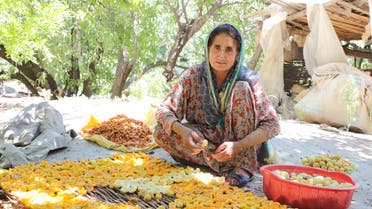
In one such project, 20 underprivileged women of Skardu, a town in Gilgit-Baltistan, situated some 2,500 meters up in the Skardu Valley, were trained in honeybee farming. A total of 60 beehives were distributed to them – three per beekeeper – along with a kit that included safety gloves, masks, smokers, and veils.
“We totally eliminated the middlemen and you can imagine the transformation that has been brought about in the lives of those women,” said Hashwani.

The project also promoted social change. “The foundation agrees to buy the honey from the women, while also helping them sell their produce directly to major supermarkets, hotels and even airlines in Pakistan, provided the families agree to send their children to quality schools, have regular health check-ups and improve nutrition at home, Hashwani explained.
Barely a year after it was set up in 2008, the project bagged the BBC World Challenge award – an international contest aimed at projects showing enterprise and innovation at the grassroots level – a first for Pakistan. It was also featured at the 2007 Clinton Global Initiative.
Shift towards an inclusive approach
Hashwani said that both impact investing and philanthropy are about improving the lives of people across the world and are therefore equally valuable for companies and organizations to be a part of.
One key factor to keep in mind is how the new generation is supporting such initiatives and how they view an organization’s reputation based on such initiatives.
“They are not only becoming agents of change, but are also leveraging the power of their global network and supporting brands and products with deep-rooted social impact strategy in place,” Hashwani said.
Further explaining the point, he added: “Being involved in creating change and measuring its socio-economic success in communities around the world is the focus of Gen Z. There’s an urgency in this generation, and rightly so, to find solutions for some of the biggest challenges of our times. Therefore, I foresee a more radical and inclusive approach to philanthropy and impact investment in the coming years.”
Outreach programs
“When you meet individuals whose lives have been transformed for the better through the various programs launched by Hashoo Foundation since its inception in 1988, it just humbles you and makes you want to do more,” Hashwani said, adding that his father had launched the foundation to help communities become self-reliant, provide income opportunities to women so that their children can pursue education.

The foundation has since grown into a national entity with 18 offices across Pakistan and an expanding footprint in education, inclusive economic growth and more recently – climate action.
Hashwani said the foundation’s data showed it had reached more than 1.3 million beneficiaries across Pakistan in over three decades – with the majority being women and youth.
The Hashoo Group Deputy Chairman felt that the decision to establish its office in Dubai had “proven to be a great move.”
“Apart from being a great launch pad for my international business dealings, it has also given Hashoo Foundation opportunities to collaborate with the likes of Dubai Cares,” Hashwani said.
For instance, a case study from Hashoo Foundation was selected to be part of Dubai Cares’ Dignified Storytelling program that was showcased during Expo 2020.
“It was a great honor for the foundation and a wonderful international platform that gave us some great exposure,” Hashwani said.











